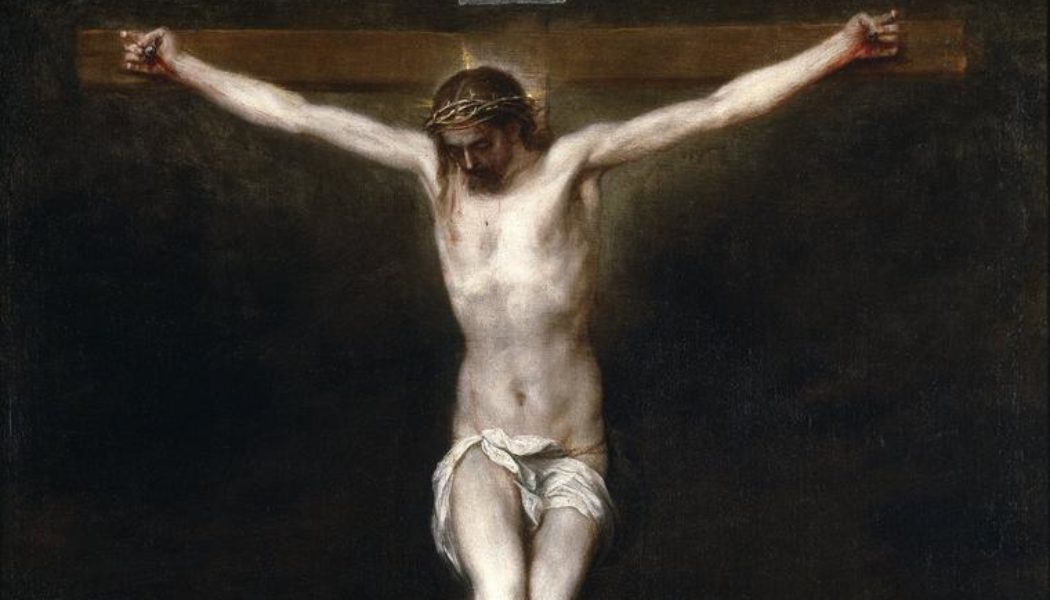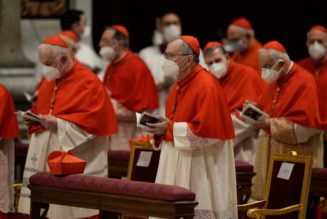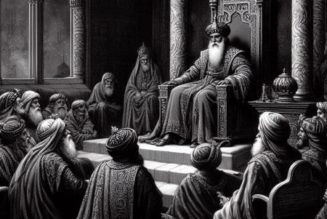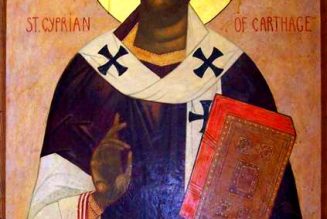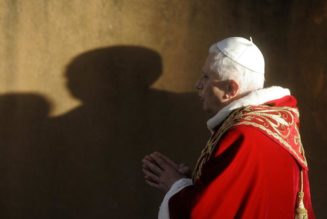
Q. I am 18 years old, and recently the “problem of evil” really threw me for a loop and caused me a lot of pain. I am asking for your help in understanding it a bit more. Why did God, who is omniscient and omnipotent, despite knowing the future, let Adam fall? Why didn’t God stop Adam from falling, or create the world on a timeline where Adam never committed the Original Sin? Why didn’t God create a perfect world? — Adam, Secaucus, New Jersey
A. This rightly named “problem of evil” is indeed perplexing and you are not the first to be thrown for a loop by it. I have spent the majority of my life struggling with it and find it more baffling today than I did when I first believed. It is especially agonizing for those who believe in God and who love him and yet who suffer some grievous loss or evil.
We start by insisting that God does not intend evil. He doesn’t do evil. We have to start here, lest we attribute evil directly to God. Believers often say to God, “Why did you do this evil to me?” And that’s understandable since God is all-powerful and “if we were God”, we say, “we wouldn’t allow such and such.”
But the idea that God is doing evil to me is a strict misconception. Evil is a privation, a lack or the absence of some good, and God is the fullness of good. He cannot will a privation. He cannot and does not will evil upon us. Only the devil, fallen angels and we humans in this sense do evil.
But God certainly allows evil, which can feel worse. “You could have stopped this,” we say, “but you didn’t! Why?”
So we are still left with a perplexing question: Why does God allow evil?
St. Thomas Aquinas replies by saying that God allows evil to exist so that he might bring about good. But not just any good — not merely good that otherwise could be actualized if evil didn’t exist. Rather, good that wouldn’t exist if evil didn’t exist.
What possible good could justify allowing all the evil from Adam down to our day? The beautiful Easter prayer, the Exsultet, reminds us: “O happy fault, O necessary sin of Adam, which gained for us so great a Redeemer!” Because of the Fall, God sent Jesus to be our redeemer. He redeems us because we need redeeming, because sin and its consequences establish the hegemony of death from which we need saving. The cross, death and resurrection are God’s marvelous responses to Adam’s sin.
And by redeeming us, Jesus puts us in a position to cooperate with him in overcoming all the evil in the world.
Although cooperating in God’s redeeming plan makes life harder than it would have been had God never allowed the Fall, because of that cooperation, great goods come to us and to the world — and ultimately to the Kingdom — that could come about only as a result of striving against evil.
Adam was the noblest of God’s creation. The man Jesus Christ is much nobler than Adam. Jesus was ennobled because he became obedient unto death. And he couldn’t have done that if there hadn’t been evil and death to overcome.
Likewise, we are ennobled as we become obedient to God’s plan for us in a fallen world. For example, feeding the hungry, visiting the sick and imprisoned, and burying the dead could not occur if there were no poverty, neglect, evildoing and death. And these things can be traced back to the fact that we are living in a fallen world.
In responding to needs that arise because of Adam’s sin — though not necessarily because of the sin of those who are in need! — we become more beautiful than if we had never responded, and in ways we could never have become. The world then becomes more beautiful, and ultimately the Kingdom will be more beautiful.
Think of the saints whose lives were greatly enriched by striving against evil in themselves and in the world. The beauty of the life of Mother Teresa would have been impossible if there were no opportunities to reach out to the poorest of the poor.
Because of sin, people need our help. We need people’s help. Helping others allows us to build a more profound human solidarity than otherwise could be built. So also, the solidarity between God and man is more profound than it otherwise could have been if we had no need for the cross of Christ.
Examples can be multiplied. The vocations of priests, religious sisters and others called to pastoral ministry are possible only because God allowed the Fall. The strength of the mother who patiently endures multiple childbirths; the dedication of parents who sacrifice for their disabled children; the purity of consecrated celibates; the one-flesh charity of faithful spouses; the endurance of those who suffer chronic illness; the humility of the addict who follows the 12 steps; the self-knowledge of the girl who strives faithfully against anorexia; the noble dignity of the man perfected in the crucible of gender dysphoria; the self-mastery of the one who suffers from same-sex attraction and remains chaste. … These and all like them are made perfect not in spite of suffering and evil, but precisely through striving righteously against them in themselves and in the world.
These stunning instantiations of human beauty — the beauty of Christlike characters — are made possible because of the presence of evil in the world. Of course, the Fall, suffering and evil are not in themselves good. Not at all. But God brings good out of them by inviting us to become cooperators in his redemptive plan for ourselves and the world.
Yes, God allows evils because he foresees goods that can come about that otherwise would not be possible if evil did not exist. He wants those goods to exist, and he wants them to exist in us, and he wants us to live forever in his Kingdom. Ultimately, these goods could not be a part of the Kingdom without evil. Saints as we know them could not be part of the Kingdom without evil in this life. And saints are God’s flowers, and as flowers beautify a garden, saintliness beautifies the Kingdom.
Through our free cooperation with God, we build ourselves into the persons we will be forever.
Pope St. John Paul II expresses this idea in Veritatis Splendor. Quoting St. Gregory of Nyssa, he writes:
Now, human life is always subject to change; it needs to be born ever anew … here birth does not come about by a foreign intervention, as is the case with bodily beings … it is the result of a free choice. Thus we are in a certain way our own parents, creating ourselves as we will, by our decisions. (No. 71)
You, Adam, are parenting yourself by tenaciously pursuing answers to your questions about God, good and evil. Since we are self-creators under God by our free choices, the better our free choices are, the better people we will become — and, unless we backslide, the better we will be forever. And our free choices will be the best they can be if we diligently seek, resolutely accept and faithfully live our personal vocations.
So, you see, the problem of evil is related to the splendor of Heaven. Although God knows what kind of person each of us will be in the Kingdom, we do not yet know. The Christian moral life is the studio in which — in cooperation with grace — we sculpt ourselves through our free choices, and so work out our salvation.
